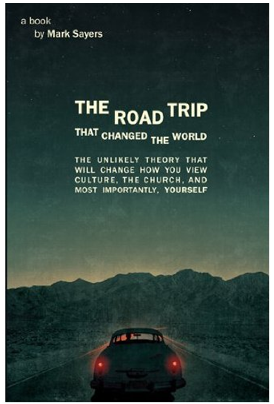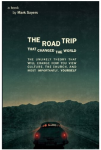 Have you ever heard of Jack Kerouac and his book, On the Road
Have you ever heard of Jack Kerouac and his book, On the Road?
Maybe I’ve been living in a hole, or maybe I am too young, but until I read Mark Sayers’ new book, The Road Trip that Changed the World I had never heard of Kerouac. Since I had never heard of him, I often found myself wishing for a road map as I read The Road Trip that Changed the World, because I felt lost.
Mark Sayers posits the unlikely theory (his words, not mine) that Jack Kerouac’s book changed American culture, the church, and the way we all live and view life. Calling this an “unlikely theory” is an understatement.
Ultimately, I agree with what Mark Sayers has written. He wants to argue that during the past fifty years, American culture and church culture has radically changed. I couldn’t agree more.
But to blame Jack Kerouac and his books for this change is to give Kerouac way too much credit.
Mark Sayers would have been better off using Kerouac as an example of the changes that were taking place in culture than to give Kerouac the credit for being the genesis and originator of these changes. In other words, it is much more probable that culture was changing — and with it the church — and one person who exemplified these cultural shifts was Jack Kerouac. He lived out the changes that were occurring, but was not himself the catalyst and creator of these changes. Taking this approach, would have made Mark’s book much stronger.
But what about the changes themselves? I think Mark does a pretty good job describing and analyzing many of the changes that have occurred. To name just a few, Mark writes about how nothing is sacred (p. 107), how feelings have become more important than faith (p. 114), and how society worship idols of self-satisfaction and consumerism (p. 203).
For the most part, I think Mark has correctly analyzed some of the dangers and pitfalls of our contemporary culture. He has a good read on the pulse of our society. I just wish he had left Kerouac out of it. My favorite chapters in the book were the few where Kerouac was barely mentioned (if at all). Chapters 17, 18, and 19 were three of the best chapters in the book, and these chapters were focused more on gleaning insights from the Scriptural accounts of Adam and Abraham. I found Mark’s insights into these biblical texts to be insightful and helpful. I wish he had done more of this type of writing.
Having said all this, I recognize that maybe my difficulty with the book was that I don’t know who Kerouac was. If, however, you have read Kerouac and was influenced by his books, then this might be a great book for you.
And the good news is that the publisher sent along an additional copy of the book for me to give away on my blog. If you want to be entered in the drawing for this book, leave a comment below about whether or not you have heard of Jack Kerouac, and where you think most cultural changes come from. For an additional entry, Tweet this post with my Twitter handle @jeremyers1 in the Tweet.




Leave a Comment or Question